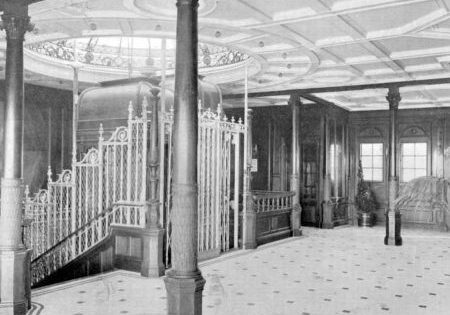Court of Appeal upholds contractor’s right to terminate JCT contract for repeated late payment by employer.
The Court of Appeal has issued a significant decision regarding the interpretation of clause 8.9.4 of The Joint Contracts Tribunal (JCT) Design and Build Contract, concerning a contractor’s right to terminate for repeated default by its employer.
The decision in Providence Building Services v Hexagon Housing Association Ltd. [2024] confirmed a contractor was entitled to terminate its employment for repeated late payment despite its employer having cured a previous breach by making payment within the period allowed for remedying the specified default. Overturning an earlier ruling from the Technology and Construction Court (TCC), the decision is a big win for contractors seeking to end their continuing exposure to upstream default.
Key Takeaways
- A “natural and ordinary” reading of clause 8.9.4 entitles a contractor to terminate a JCT contract where an employer repeatedly misses the payment deadline without having to give a further notice of specified default. This is true even if the initial default is remedied before it triggers a right to terminate under clause 8.9.3.
- For employers who have previously defaulted, strict adherence to payment schedules is a must to avoid triggering termination rights under clause 8.9.4.
- While contractors will still need to think carefully before invoking the “nuclear” option of contract termination, having the right to terminate for repeated default is valuable leverage to help ensure future payments are made on time and in full, preserving cash flow.
Background
In February 2019, Hexagon Housing Association Ltd. (“Hexagon”) engaged Providence Building Services (“Providence”) for the construction of several buildings in Purley. The contract was a 2016 JCT Design and Build Contract, incorporating specific amendments agreed by both parties.
The relationship between the parties deteriorated because of repeated late payment by Hexagon. In total, 19 out of 32 interim applications were paid late.
Clauses 8.9.3 and 8.9.4 of the contract contained the standard JCT 2016 wording, save that the 14-day cure period was extended to 28 days. It is helpful to set out the clauses involved:
“8.9.3: If a specified default or a specified suspension event continues for 28 days from the receipt of notice under clause 8.9.1 or 8.9.2, the Contractor may on, or within 21 days from, the expiry of that 28-day period by a further notice to the Employer terminate the Contractor’s employment under this Contract.
8.9.4: If the Contractor for any reason does not give the further notice referred to in clause 8.9.3, but (whether previously repeated or not):
.1 the Employer repeats a specified default;
2 a specified suspension event is repeated for any period, such that the regular progress of the Works is or is likely to be materially affected thereby,
then, upon or within 28 days after such repetition, the Contractor may by notice to the Employer terminate the Contractor’s employment under this Contract.”
In December 2022, Hexagon failed to pay the sum notified by Payment Notice No. 27 by the final date for payment. Providence responded by issuing a notice of specified default under clause 8.9.1 of the contract. Hexagon subsequently paid the full amount before the 28-day cure period in clause 8.9.3 had expired.
Four months later, in April 2023, Providence became entitled to payment pursuant to Payment Notice No. 32. Again, Hexagon failed to meet the payment deadline. This time, instead of serving another notice of specified default, Providence took the bold step of issuing a termination notice under clause 8.9.4. This notice styled the April 2023 non-payment as a repeat of the earlier specified default from December 2022.
Hexagon paid Payment Notice No. 32 but challenged the lawfulness of the termination notice. It referred the dispute to adjudication.
Finding substantially in Hexagon’s favour, the Adjudicator determined that a right to terminate under clause 8.9.3 must have accrued before Providence could have any right to terminate under clause 8.9.4. As Hexagon had cured the earlier default within the 28-day period provided, the right to terminate had never accrued.
In the Court’s view, the contract clearly stated that, once Hexagon had committed a specified default, Providence had an immediate right to terminate its employment if Hexagon ever failed to make payment on time again.
Providence disagreed with this interpretation. On 28 July 2023, it therefore referred the matter to the High Court for a declaration as to the correct construction of clause 8.9.4.
First Instance Decision
Mr. Adrian Williamson KC, sitting as deputy High Court judge, found in favour of Hexagon. In setting out his interpretation of clause 8.9, the deputy judge concluded that:
- The right to terminate under clause 8.9.4 could not crystallise where the right to give a clause 8.9.3 notice had never arisen; as here, because Hexagon’s payment within the 28-day grace period had cured the initial specified default.
- Providence’s notice to terminate was thus deemed invalid.
In making his decision, the judge agreed with Hexagon’s counsel who said that Providence had “a battery of weapons available to him to protect his cash flow position,” including the right to suspend the works. Termination was an inappropriate remedy in circumstances where a specified default had been rectified within the grace period and was then repeated, perhaps only to a minor extent.
Providence countered that the judge’s interpretation of clause 8.9 would allow an employer to make every payment 27 days late and still avoid the possibility of termination because the right to serve a clause 8.9.3 notice would never arise. It obtained permission to escalate matters to the Court of Appeal.
Court of Appeal Decision
The Court of Appeal disagreed with the TCC’s interpretation and overturned its decision.
Adopting a simple, literal interpretation of the contract, with an “intense focus on the words used,” the appellate judges unanimously determined that it was not necessary that a right to terminate under clause 8.9.3 must have first accrued before Providence could have the right to terminate its employment under clause 8.9.4. In particular, the court found that the phrases “for any reason” and “does not give” were unnaturally interpreted by the first instance judge so as to make them an intertwined sequence of provisions for the contractor, contrary to the plain meaning of the words.
In the Court’s view, the contract clearly stated that, once Hexagon had committed a specified default, Providence had an immediate right to terminate its employment if Hexagon ever failed to make payment on time again. Further notice was not required.
Analysis
Clauses in construction contracts are to be interpreted based on the plain meaning of the wording used. In the case of clause 8.9.4, a simple interpretation enables contractors to terminate a contract where an employer repeatedly fails to make payments on time, and there is no requirement to give further notice under clause 8.9.3 to achieve this. This provides contractors with valuable leverage.
Termination is generally seen as the “nuclear” option. While contractors may still be reluctant to use it, we expect that clause 8.9 may now become a focal point of negotiation as employers seek to lessen the impact of this ruling.
This article contains information of general interest about current legal issues but does not provide legal advice. It is prepared for the general information of our clients and other interested parties. This article should not be relied upon in any specific situation without appropriate legal advice. If you require legal advice on any of the issues raised in this article, please contact one of our specialist construction lawyers. © Hawkswell Kilvington Ltd. 2025
Thomas Salter focuses on contentious matters and advises on complex construction and engineering disputes throughout the contractual supply chain. Disputes frequently concern extensions of time, variations, non-payment and contract formation. Thomas has extensive experience of all standard forms of contract including JCT, NEC and FIDIC, and is frequently asked to provide contractual and commercial advice to clients during ongoing projects. Thomas is regularly instructed to represent clients in adjudication, litigation (usually in the Technology and Construction Court), arbitration and mediation. He can be reached at [email protected].
Get more of Elevator World. Sign up for our free e-newsletter.










